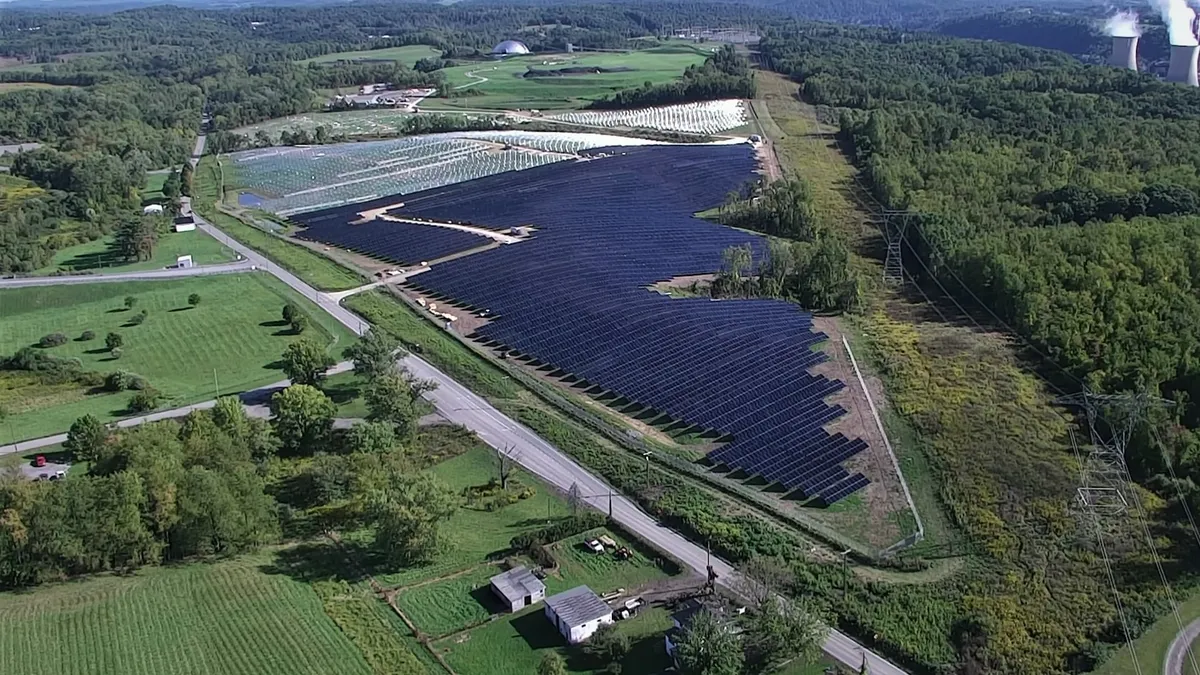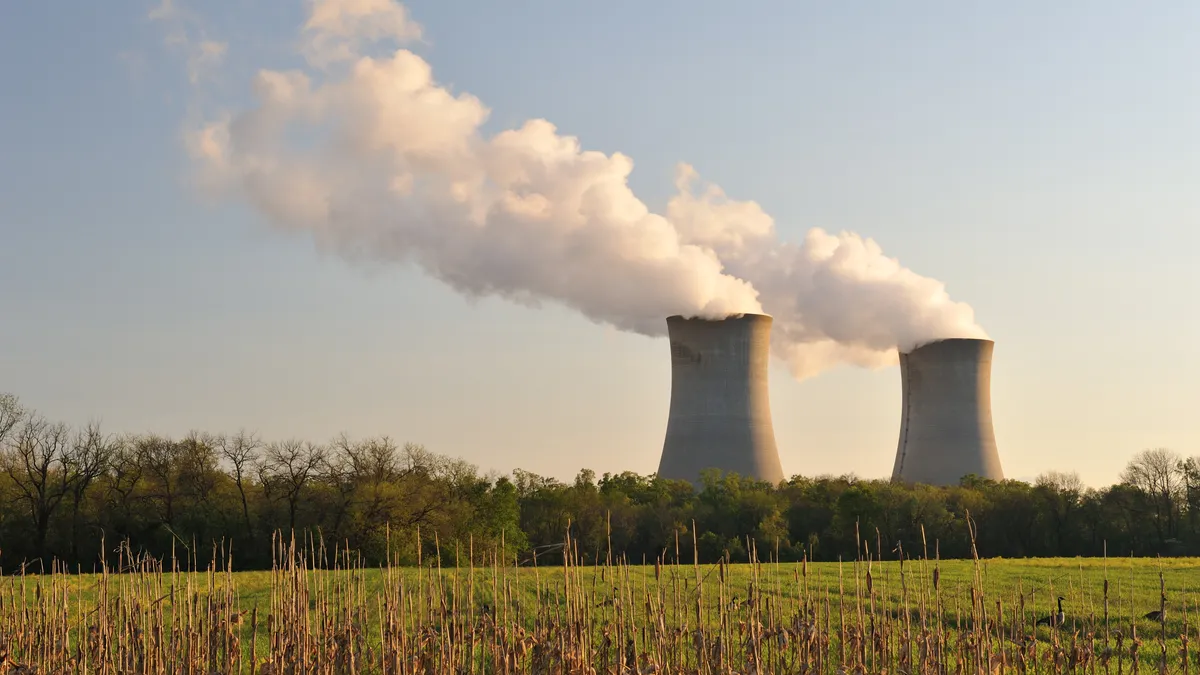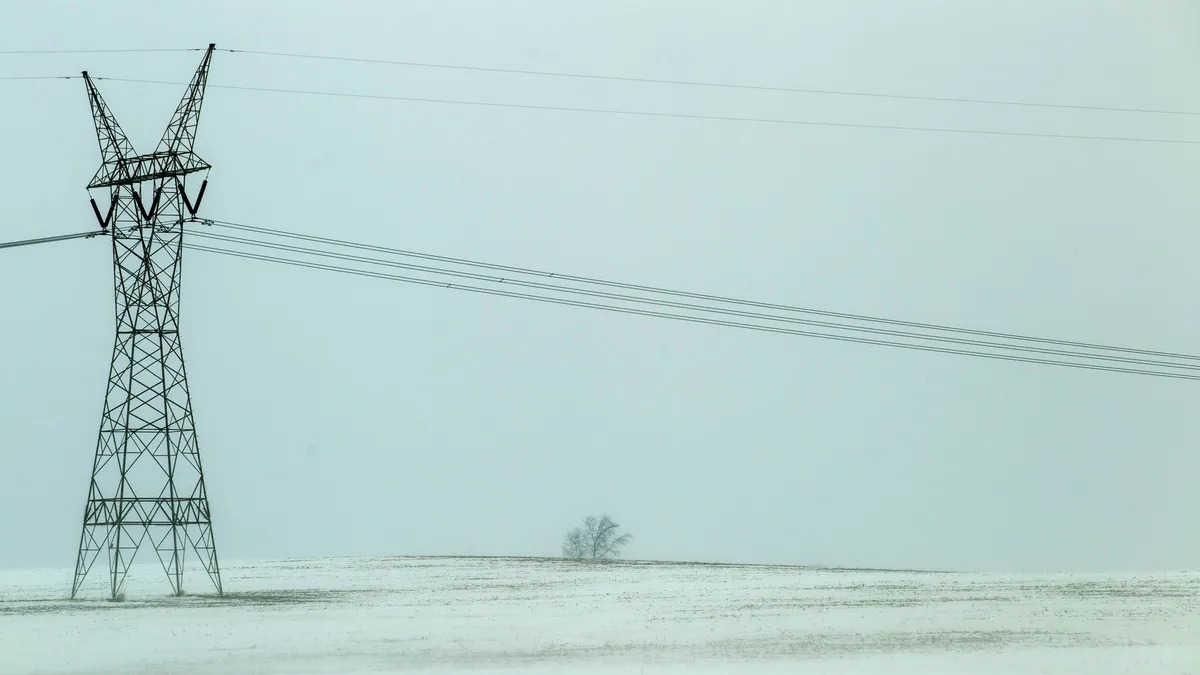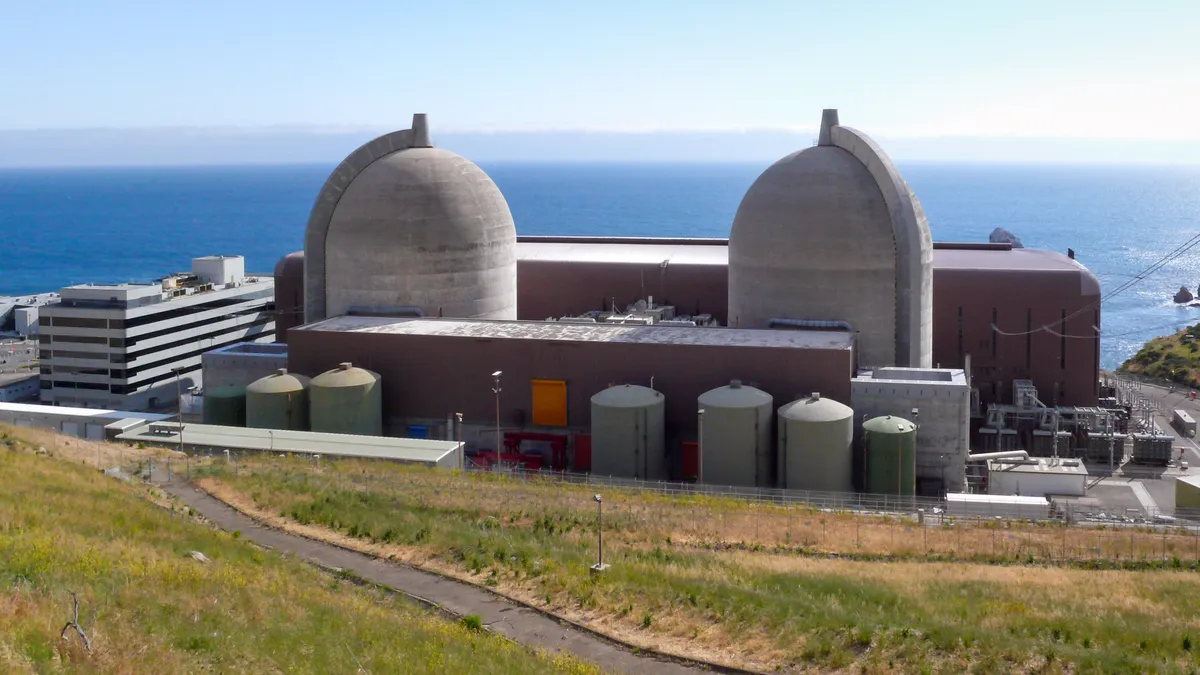Based on the PJM Interconnection’s last two capacity auctions, it appears the grid operator’s capacity market isn’t up to the task of providing adequate power supplies for its 13-state footprint, according to Brian Tierney, FirstEnergy president and CEO.
Tierney’s comments came during an earnings conference call on Wednesday, a day after PJM released the results of its most recent capacity auction. The auction produced record-setting prices — with consumers set to pay $14.7 billion for capacity in the 2025/26 delivery year, up from $2.2 billion in the last auction — but only drew in 110 MW of new generation, down from 330 MW in the previous auction.
“I'd call yesterday's print, the canary in the coal mine and the canary didn't make it,” Tierney said. “If you look at what's happened with the [independent power producer] prices over the course of the year, they are all anticipating higher prices in the years going forward.”
The new generation that cleared in the auction was “essentially nil,” Tierney said. “Same in the auction prior to that, it was about 300 MW, again, not the right amount. If people were to respond to yesterday's print and say, ‘Yes, I think it's a good idea to invest in baseload dispatchable generation in PJM,’ it would be six years before that capacity would come online.”
Tierney said he doubts PJM’s capacity market will attract significant power plant investment into the region. “So it’s something we need to figure out,” he said. “I just don't think the PJM construct is going to fix the issue even if it sends some positive price signals.”
FirstEnergy is “actively engaged” in talks on alternative ways to build power supplies, Tierney said. The company is allowed to own generation in West Virginia, but has “wires only” utilities in Maryland, New Jersey, Ohio and Pennsylvania.
“We're open to any construct that would allow us to invest in capacity on something that looks like a regulated basis,” Tierney said. States like Pennsylvania and Ohio could create an agency akin to the New York State Energy Research and Development Authority that could procure power supplies, he said.
“If it looked like a regulated basis and we could offer at a price that would allow us something that looked like a regulated return and allow us to recover on a pass-through basis, fuel and energy, those are things that we'd be willing to do,” Tierney said.
That framework could exist alongside energy markets and retail choice, according to Tierney.
“I also think you could have constructs like NYSERDA or [the New York Power Authority] where they could buy on behalf of the state's residents, and that doesn't have to be an end to competition,” Tierney said. “They can even have auctions where all people could participate in that, utilities, independent power producers, and others.”
Here are three other takeaways from FirstEnergy’s earnings call.
FirstEnergy nears bribery scandal settlements. The Akron, Ohio-based utility company has reached an agreement in principle with U.S. Securities and Exchange Commission staff to settle allegations related to FirstEnergy’s role in the H.B. 6 bribery scandal, according to Tierney. FirstEnergy has set aside $100 million for the potential settlement, the company said.
Also, FirstEnergy is in the final stages of a resolution with the Ohio Organized Crime Investigations Commission, Tierney said. The company set aside $19.5 million for the resolution, which is expected to also resolve the Ohio Attorney General’s civil case against FirstEnergy.
“We're making real progress on putting those legacy issues behind us and focusing on the future,” Tierney said.
Data centers under development in all FirstEnergy states. Compared to 2023, FirstEnergy is studying more than twice the number of data centers over 500 MW this year, according to the company. FirstEnergy has excess transmission capacity to service data centers and other new customers, Tierney said.
However, FirstEnergy’s utilities are experiencing only “modest, steady” load growth, partly driven by a growing number of electric vehicles in Maryland and New Jersey, Tierney said. Weather-adjusted residential sales increased 0.4%, commercial sales jumped 1.3% and industrial sales climbed 1.1% in the last 12 months, according to FirstEnergy’s earnings presentation.
Earnings plunge on one-time charges. FirstEnergy’s second-quarter income plummeted to $45 million, or 8 cents/share, down from $235 million, or 41 cents/share, in the same period last year, the company said in a press release. Second-quarter revenue grew to $3.3 billion from $3 billion a year ago.
FirstEnergy’s earnings were dragged down by 28 cents/share because it recorded a $207 million “asset retirement obligation” in response to new Environmental Protection Agency requirements for coal ash disposal sites, according to the company’s earnings report filed with the SEC. The company also took a 4 cent/share charge related to the H.B. 6 investigations.





















